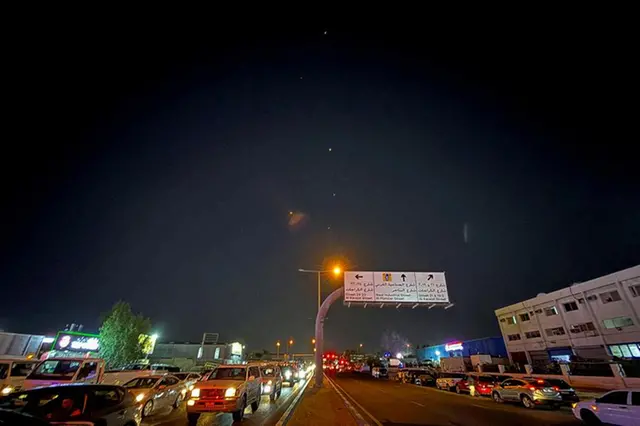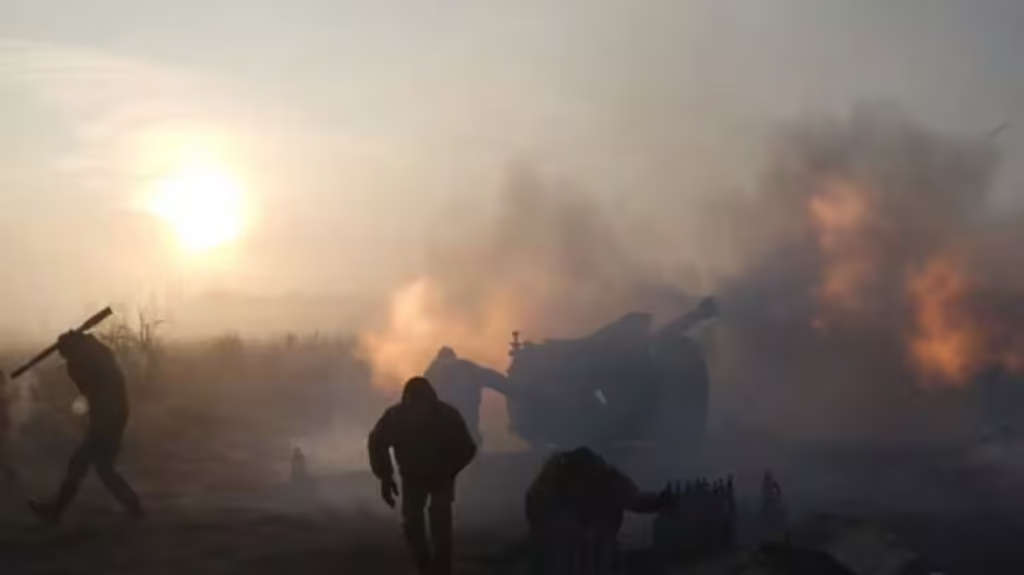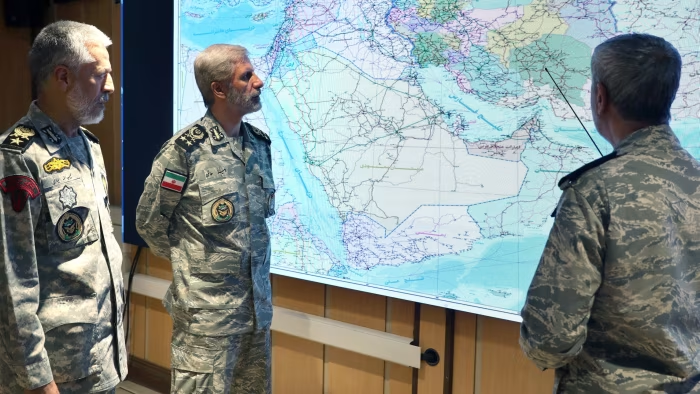In a shocking turn of events that rattled the Middle East and raised alarm in diplomatic circles worldwide, Iran launched a missile attack on Qatar this past week. The aggressive military strike has drawn sharp condemnation from several key nations, notably the United Arab Emirates, Italy, and Saudi Arabia, who swiftly and decisively voiced their support for Qatar’s sovereignty and security.
The incident, which took place during a period of already heightened regional tension, has sparked a wave of solidarity, urgent diplomatic talks, and collective outrage. It has also reminded the world of the fragile balance in Middle Eastern geopolitics and the importance of unity in the face of unprovoked aggression.
An Unprovoked Act That Shook a Region

The missile attack, which targeted strategic locations near Doha, sent shockwaves throughout Qatar and beyond. Though local authorities quickly brought the situation under control and reported no casualties, the psychological impact was significant. Residents were jolted from their daily lives, and the Qatari leadership wasted no time in alerting the international community.
What makes this incident particularly alarming is that it came without warning and without a clear motive. In a region already wrestling with delicate relationships and complex alliances, Iran’s sudden aggression has further complicated the landscape.
For Qatar, a nation known for its diplomacy, humanitarian initiatives, and hosting major global events, this act of hostility was not just an attack on its land but an affront to its values of peace and regional stability.
UAE’s Prompt and Decisive Response
One of the first countries to react was the United Arab Emirates. Despite its own complex history of relations with Qatar, the UAE put aside past differences in a show of regional solidarity. The UAE’s Foreign Ministry issued a powerful statement condemning the missile attack as “a blatant violation of international law and a reckless threat to regional peace.”
Top Emirati officials reaffirmed their commitment to supporting the sovereignty of neighboring countries and upholding the principles of peaceful coexistence. They stressed that such acts of aggression would only destabilize the Gulf region, threatening the safety of millions of innocent civilians.
In a series of social media posts and interviews, influential UAE leaders emphasized the need for unity against hostile actions, earning praise for prioritizing collective security over political rivalry.

Italy’s Voice of European Solidarity
Beyond the Gulf, Italy stood firm with Qatar, reflecting the strength of their bilateral relations and Italy’s broader commitment to peace in the Middle East. The Italian government swiftly denounced Iran’s missile strike as “completely unacceptable” and called for immediate de-escalation.
Italian officials also reached out to Qatari authorities, offering diplomatic and humanitarian assistance if needed. Italy’s strong position was seen as a pivotal move in rallying European Union support for Qatar, reinforcing the idea that the attack was not just a regional issue but a matter of international security.
Italian diplomats highlighted the importance of respecting national sovereignty and protecting civilians from unwarranted violence. Their clear and empathetic stance was welcomed by both Gulf leaders and global peace advocates.
Saudi Arabia Rises in Defense of Qatar
Perhaps the most noteworthy reaction came from Saudi Arabia. Historically, relations between Saudi Arabia and Qatar have seen their share of strain, particularly during the 2017-2021 Gulf crisis. However, in the wake of this missile attack, Saudi Arabia demonstrated maturity and leadership by rising above past disputes.
The Saudi Foreign Ministry condemned the attack in the strongest possible terms, labeling it a “cowardly and destabilizing act” that posed a direct threat to Gulf unity. Saudi leaders made it clear that any aggression against a fellow GCC member would be met with firm resistance and collective action.
Crown Prince Mohammed bin Salman reportedly held emergency talks with Qatari leadership and other GCC members, advocating for a united front against external threats. The move was widely viewed as a step towards a stronger, more collaborative Gulf alliance.
The Ripple Effect Across the Gulf
The missile strike and subsequent condemnations from UAE, Italy, and Saudi Arabia have created ripples across the Gulf and the broader international community. Several other nations expressed solidarity with Qatar, issuing statements of support and urging Iran to refrain from further hostile actions.
Diplomatic analysts suggest that this incident could reshape regional alliances, with formerly strained relationships now warming in the face of shared security concerns. The GCC, which has seen divisions in recent years, may find new impetus to solidify its cooperative framework.
Public sentiment within Qatar and its neighboring states has also shifted. Citizens have taken to social media to express gratitude for the swift condemnations and support from regional leaders, with hashtags calling for peace and unity trending for days after the attack.

Why This Incident Matters to the World
While missile attacks in conflict-prone regions are sadly not uncommon, this particular incident struck a nerve for several reasons. Firstly, Qatar has long positioned itself as a mediator in regional conflicts, promoting diplomacy over aggression. An attack on such a nation signals a dangerous disregard for diplomatic norms.
Secondly, the incident threatens the already delicate balance in the Gulf region. The Middle East is home to several of the world’s most crucial oil and gas routes, and instability here can have far-reaching consequences on global energy markets and political stability.
Finally, the missile strike undermines ongoing peace efforts in the region. With several Gulf countries working towards economic partnerships and cultural collaborations, such acts of aggression threaten to derail progress and revive old hostilities.
The Road Ahead: Unity Over Division
In the aftermath of this incident, diplomatic efforts have intensified. Emergency meetings among GCC leaders and discussions with European and American counterparts have focused on how best to deter future threats and reinforce regional cooperation.
UAE, Italy, and Saudi Arabia’s swift and powerful condemnation has set the tone for a collective response. Analysts believe this could be a turning point in Middle Eastern diplomacy, proving that in the face of external threats, nations can overcome past disagreements and unite for a greater cause.
Already, Qatar has announced plans to enhance its air defense systems and increase collaboration with neighboring states on security protocols. UAE and Saudi Arabia have pledged to participate in joint military exercises and intelligence-sharing programs aimed at preventing similar incidents.
Voices of the People
Among the most compelling aspects of this story has been the response from ordinary citizens. In Qatar, the UAE, Saudi Arabia, and beyond, people have spoken out against the violence and called for peace. Social media platforms were flooded with messages of solidarity, prayers for safety, and calls for calm.
Prominent influencers, artists, and community leaders used their platforms to denounce the attack and encourage unity. The message was clear: aggression has no place in today’s world, and the people of the Middle East yearn for stability, prosperity, and cooperation.
A Reminder of Fragile Peace
This missile attack serves as a sobering reminder of how quickly peace can be disrupted in regions with complex histories and power struggles. It underscores the importance of vigilant diplomacy, proactive conflict prevention, and unwavering support for international law.
While Qatar was fortunate to escape major damage and loss of life, the psychological scars and geopolitical ramifications will linger. However, the incident has also demonstrated the power of solidarity. The unwavering support from nations like UAE, Italy, and Saudi Arabia has provided reassurance not only to Qatar but to the entire region.
Final Thoughts
In a world often divided by politics, religion, and history, moments of unity in the face of aggression stand out as beacons of hope. The missile attack on Qatar was a dark episode, but it has also inspired renewed cooperation, empathy, and resolve among Gulf nations and their allies.
As diplomatic discussions continue and security measures are strengthened, one truth remains evident — when nations come together to defend peace and sovereignty, aggression loses its power, and hope for a better, safer future endures.
Do follow UAE Stories on Instagram
United Arab Emirates vs Bangladesh, 2nd T20I: A Cricket Night To Remember













